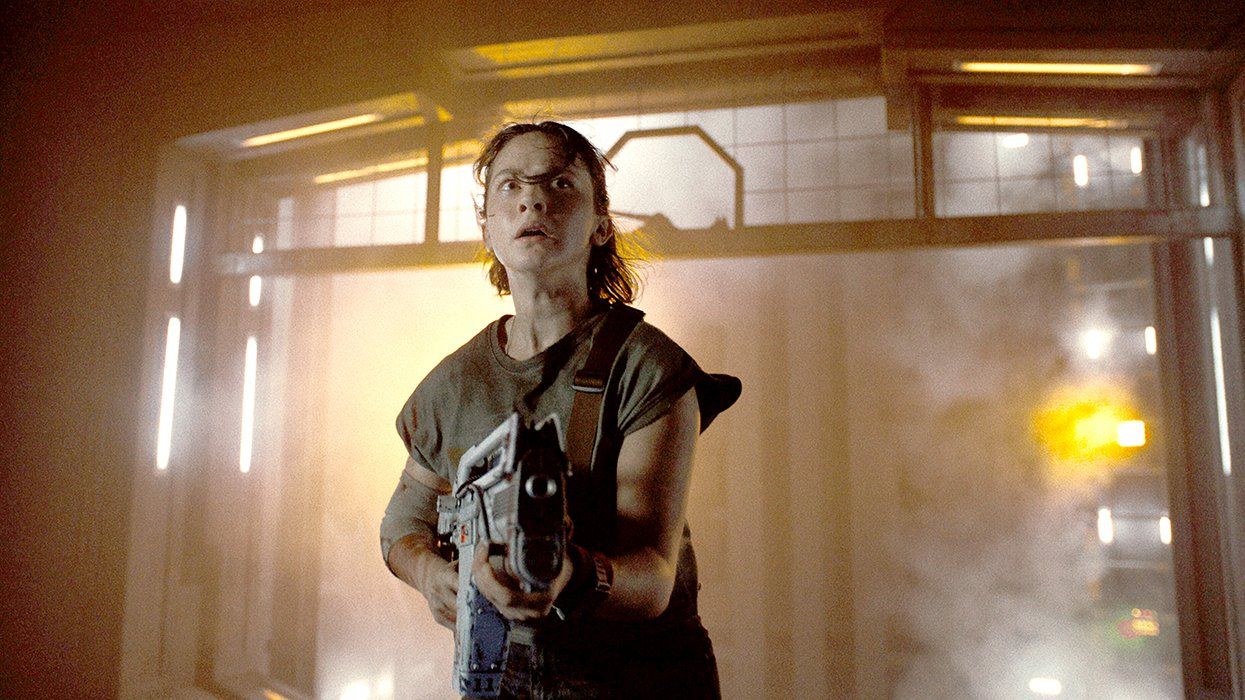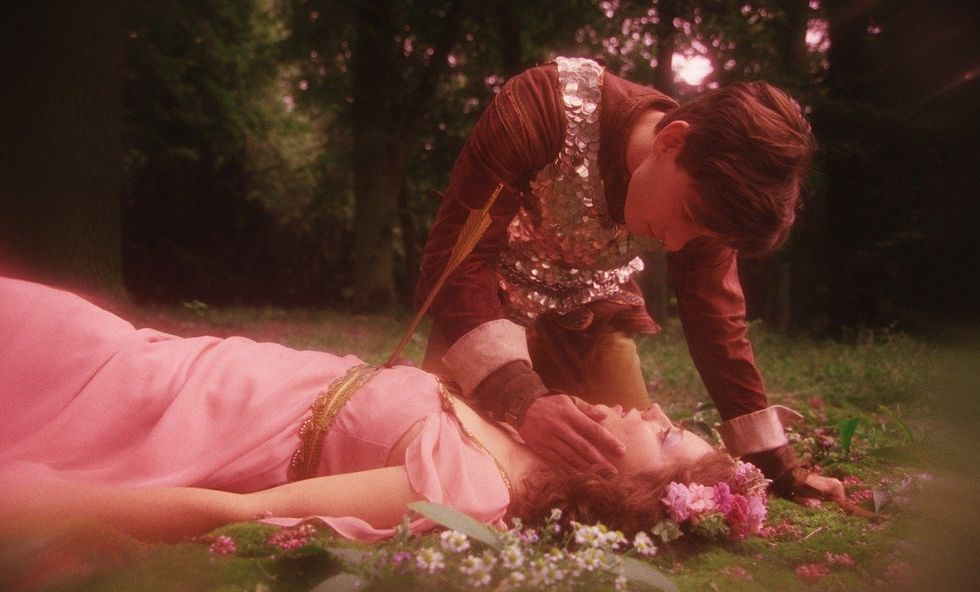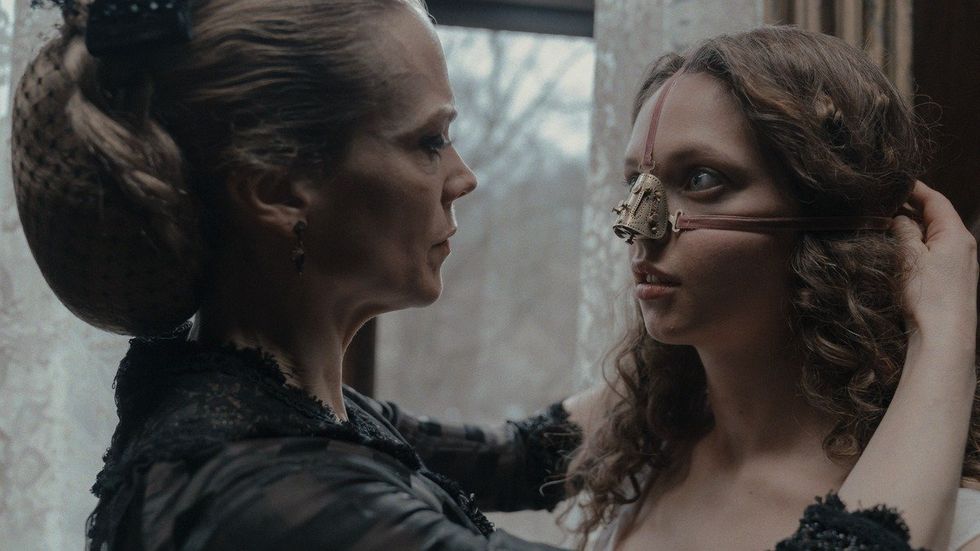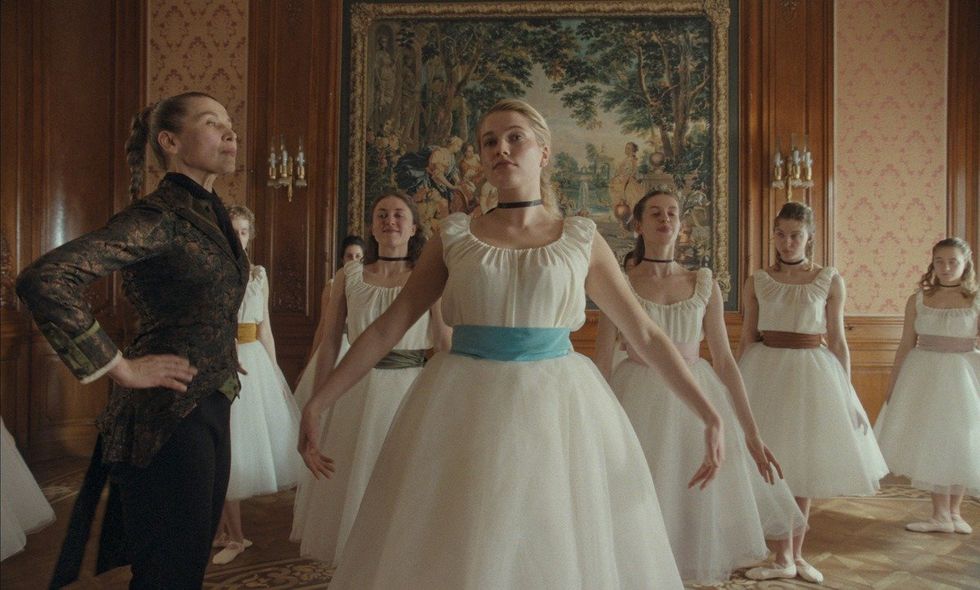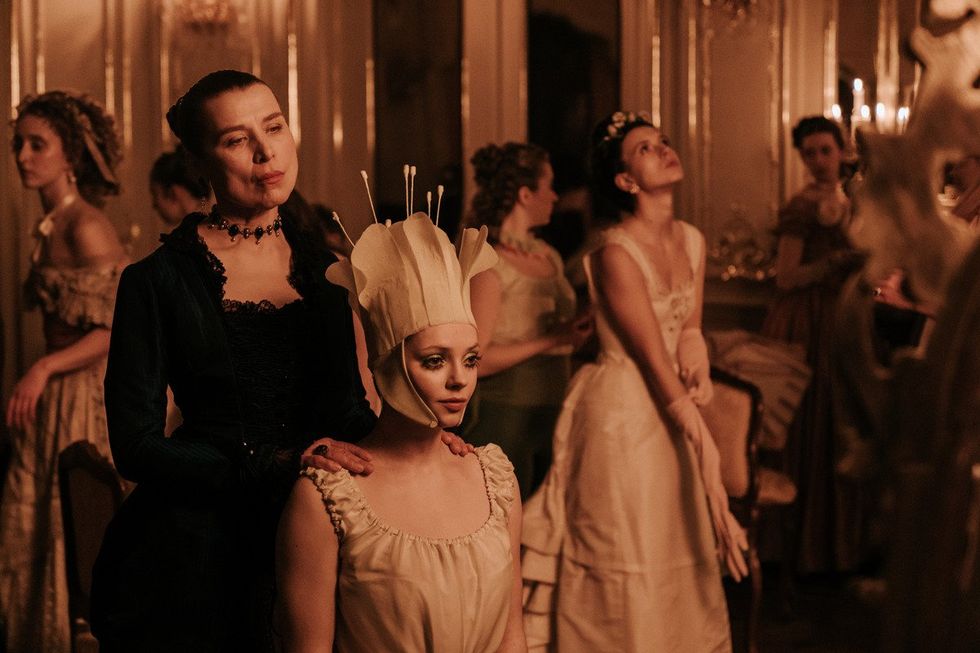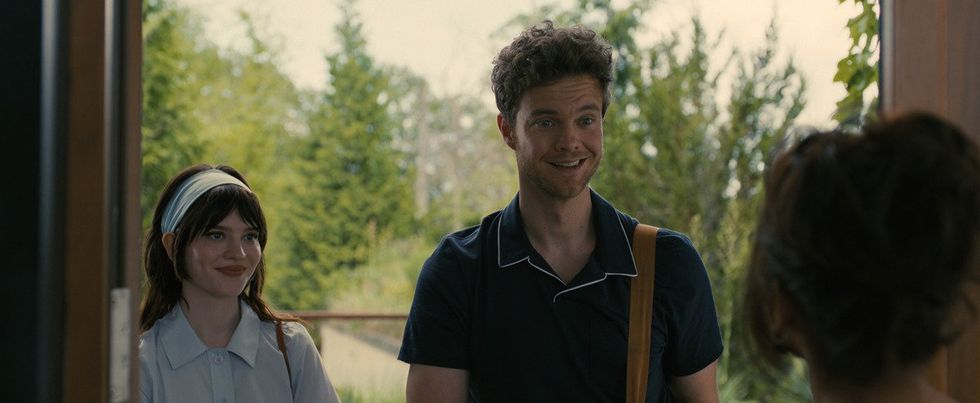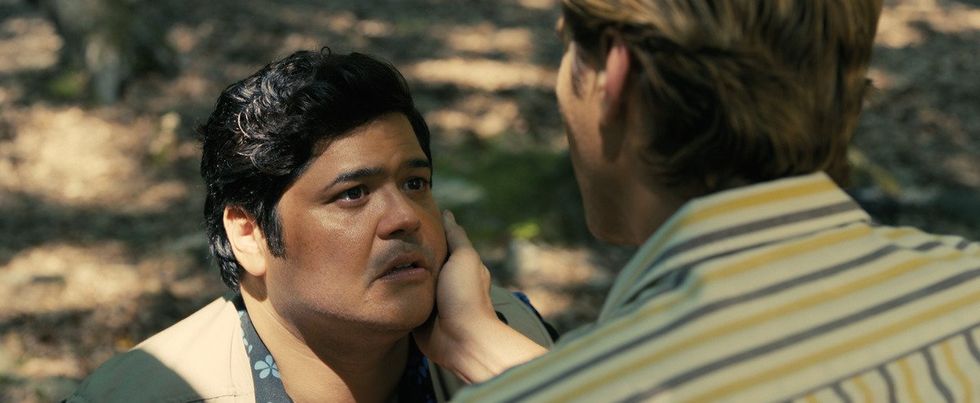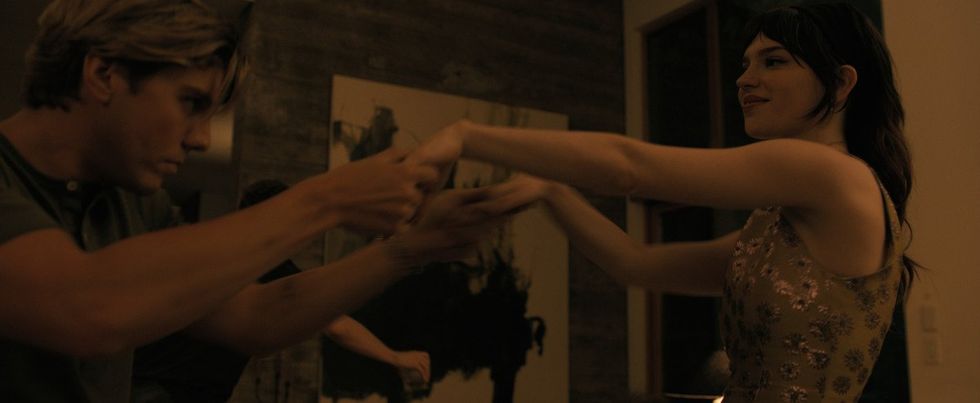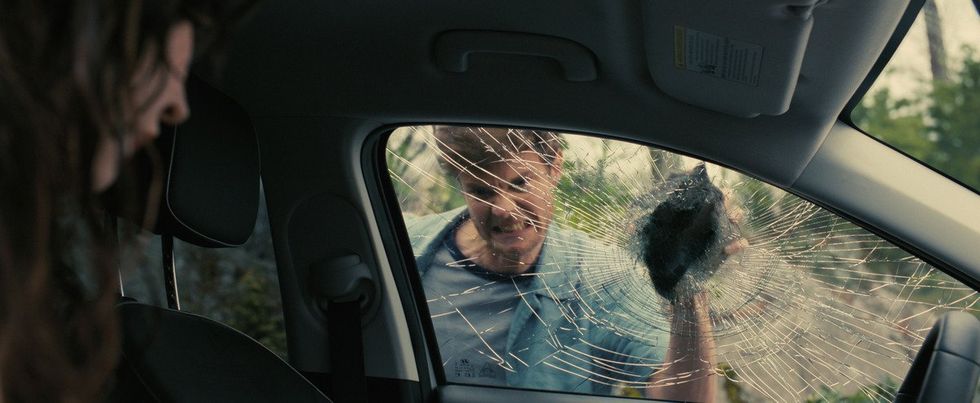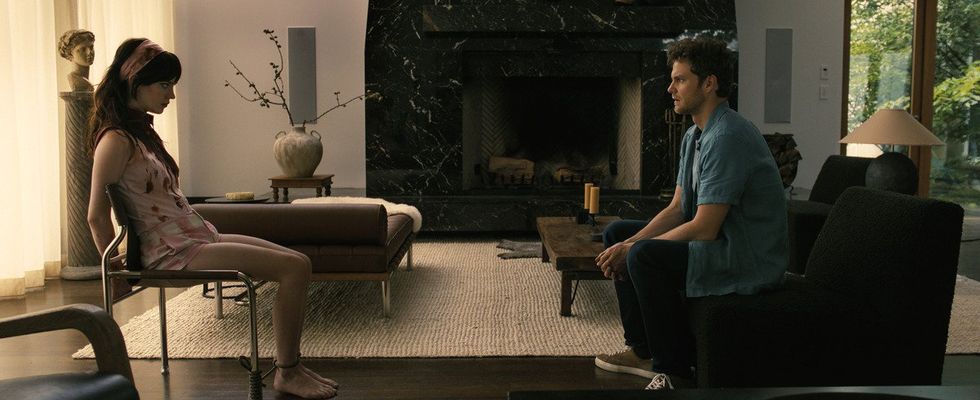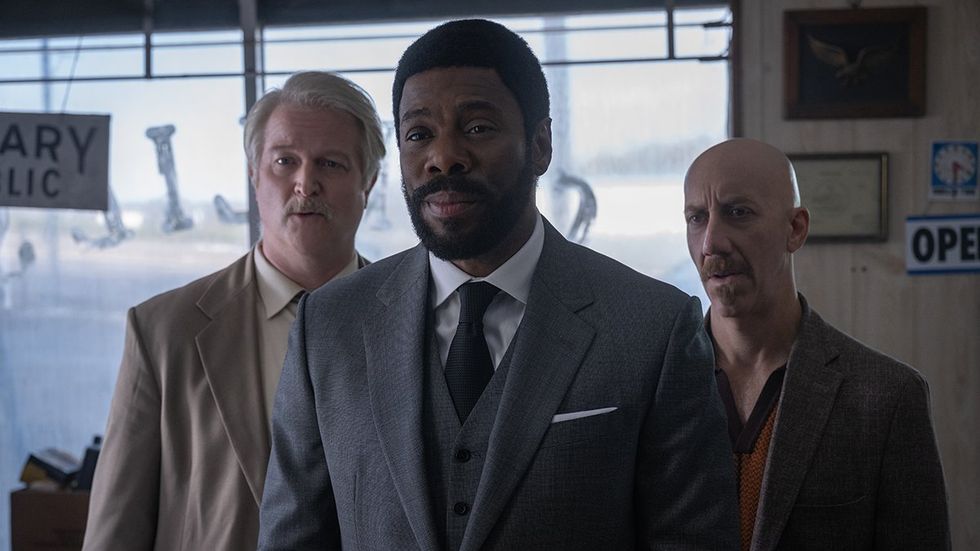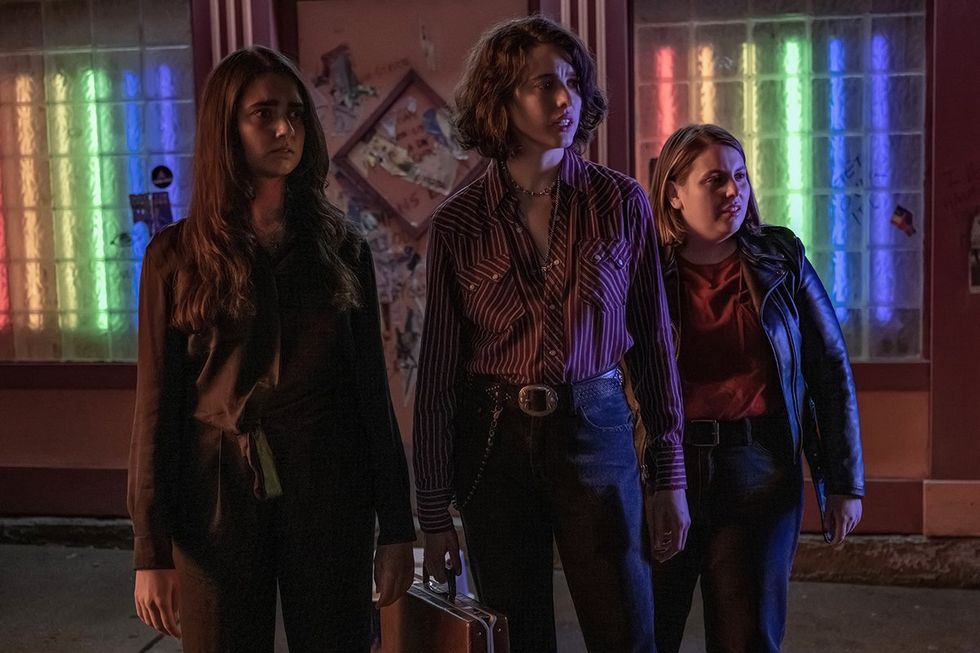*Spoilers for Alien, Aliens, Alien 3, Alien Resurrection, Prometheus, and Alien: Covenant follow, however we did our best to avoid all Alien: Romulus spoilers.*
Few films can truly be called a masterpiece, but Ridley Scott’s Alien (1979) is deserving of the moniker. The film chronicles the doomed crew of the Weyland Yutani corporation’s USCSS Nostromo who happen upon a mysterious distress beacon. Their choice to investigate leads to the introduction of an alien life form, a “perfect organism” known as the xenomorph, to their ship. The scorpion-like facehugger they bring onboard uses one of their bodies as a reproductive incubator, a xenomorph eventually bursting from it, growing rapidly into the iconic intergalactic beast that would spawn four sequels, two prequels, and two crossover spinoffs, not to mention video games, board games, comics, and novels.
It all forms it's a true pop culture juggernaut and one that queer and trans folks can certainly find themselves in, both in the subtext and eventually on screen.
This week, Alien: Romulus arrives in theaters, and by all indications is headed for a banner opening weekend with a projected box office of $40 million in North America alone. The film comes from director Fede Alvarez, who proved his horror bona fides with the shockingly gruesome Evil Dead remake and the desperately nail-biting Don’t Breathe. In short, he was precisely the person to recapture the abject terror and tension of Alien and the gonzo action of its (Academy Award-winning) sequel Aliens.

Courtesy of 20th Century Fox
Alien: Romulus picks up in the timeline between Alien and Aliens, i.e., after the destruction of the Nostromo, but before its sole human survivor Ellen Ripley (Sigourney Weaver) is discovered drifting through space in her hypersleep chamber pod (with her cat Jonesy — all hail the greatest of sci-fi kitties).
Rather than focusing on a crew of what are ostensibly space truckers like the original movie, this film starts on the ground, with a group of young space colonists trapped in a cycle of indentured servitude on a Weyland Yutani mining planet. Like all the films that came before, the anti-corporatist themes are strong and omnipresent. Our central characters are Rain (Cailee Spaeny) and her “brother” Andy (David Jonsson), the artificial human left to take care of her by her parents who inevitably succumbed to the dangerous and toxic conditions of the mine. She has dreams of leaving the dreary planet — which quite literally never sees the light of day — behind and sees her chance for escape in a daring heist of some cryosleep chambers, which she and her friends need for the long deep space journey to another inhabitable planet.
However, once they arrive at the derelict space station where the chambers await, it soon becomes apparent that they’re not alone. The xenomorphs, or more accurately their earlier form, facehuggers, await by the dozens to forcibly implant their embryos in the unsuspecting teens.

Courtesy of 20th Century Fox
What follows is a pulse-pounding series of escapes as they’re hunted by creatures who only see them as breeding grounds and fleshy resources. Alvarez manages to wring every ounce of oozing tension and horror out of the scenario, which is bolstered by strong performances from both Spaeny and in particular Jonsson, whose own evolution and moral devolution require real nuance, charm, and quiet menace.
Starring alongside these two are Archie Renaux, Isabela Merced, Spike Fearn, and Aileen Wu, who make up the rest of the friend group and would-be cryo-heisters. Each delivers a strong performance, believably driving home the abject horror of the situation they are in. However, there is something just a little strange about seeing a cast of young, gorgeous actors who could just as easily be in a horror project from MTV or The CW, set in this world where we once followed space truckers, space marines, and space prisoners. There’s something distinctly un-working class, that somehow disrupts the verisimilitude of the previous entries. It makes the movie feel more like a tentpole film and loses some of the uniqueness that was a hallmark of the early Alien entries.
Courtesy of 20th Century Fox
Gone too are some of the deeper elements of the franchise that gave it so much bite. The first film was terrifying not just because of the monster and the isolation of space, but because of what it did, or more accurately what it took from its victims: their bodily autonomy and reproductive freedom.
Alien arrived on screens just a handful of years after the passage of Roe v Wade, fresh from a time where women were routinely forced to carry unwanted pregnancies to term. Aliens flipped that on its head, presenting the male body with that same predicament and loss of reproductive choice. It was appropriately horrifying — and queer. Speaking of queerness, It’s worth noting that according to director Scott, the entire crew was pan and hooking up with one another. He regrets not including the planned scene which saw Ripley and Lambert discussing it in the film — though it is restored in the novelization of the film.

Courtesy of 20th Century Fox
This is underscored in the second film, directed by James Cameron, which reveals that Joan Lambert, the Nostromo’s navigation officer, was trans — quite a bold swing for a film that was released in 1986. Aliens also leaned heavily on the evils of capitalism and its juxtaposition with the military-industrial complex. It also flipped the script, with a radical take on the power and desire of motherhood, while also eschewing perceived gender presentation with an even more androgynous Ripley stepping into a power suit and, of course, the inclusion of the first butch I ever saw on screen, Lt. Vasquez, who was (now recognized to be problematically) played by Jenette Goldstein, and thus remains near and dear to my heart, and many a baby dyke who finds her.

Courtesy of 20th Century Fox
Alien 3, directed by David Fincher, sees the action moved to the prison planet, Fury 161 (likely a reference to the statistic that 1 in 6 gay and bisexual men would contract HIV at that time) is rife with queer subtext. Released in 2015, before we had effective HIV treatments, Alien 3 explores through metaphor the devastating effects of the HIV/AIDS epidemic. While Aliens saw Ripley go from alone, to forming a found family, Aliens 3 immediately rips that all away from her. Instead, Ripley is left alone with the realization that no salvation is coming, and that her body has been turned against her by the perfect killer: a gestating Xenomorph literally, and HIV metaphorically.
HIV activist Matthew Hodson lays it all out in his powerful X thread about the film. “Ripley is pitched against authority, who deny and dissemble in the face of the menace. Horrifyingly she realizes that the monster is also inside of her. There is no cure, no treatment. She grieves but accepts,” he writes.

Courtesy of 20th Century Fox
By the time the credits roll, Ripley has died, only to be brought back in Alien: Resurrection, which is perhaps the oddest of series. Released in 1997, it’s directed by Jean-Pierre Jeunet (Amélie) and written by Joss Whedon. Ripley has been brought back to life via cloning 200 years after the events of Alien 3. Listen, this one is very strange, but the homoerotic vibes between Weaver’s Ripley and Winona Ryder’s Annalee Call make it worthy of note. Oh, and that Weaver actually sunk that over-the-shoulder basketball shot.

Courtesy of 20th Century Fox
It would be several years before Aliens would return to the screen (on their own, for the purposes of this review we aren’t delving into Alien vs. Predator or AVP: Requiem) with two prequels, Prometheus (2012) and Alien: Covenant (2017), both of which saw Scott back in the director’s chair.
While Prometheus would prove the least queer — until now — entry in the franchise, it is also the most unabashedly pro-choice with its unflinching, terrifying, and ultimately thrilling self-administered abortion scene. It highlights the only way to combat the horrors of carrying an unwanted pregnancy to term is to take your reproductive agency back, by force if necessary.
Queerness became fully textual in Alien: Covenant by not only giving the franchise its first openly gay couple, Lope (Demián Bichir) and Hallett (Nathaniel Dean), although their kissing scene — wait for it — ended up on the cutting room floor. One that did make it to the screen though is a kiss between David and Walter, both androids, both played by Michael Fassbender. No complaints.

Courtesy of 20th Century Fox
Which brings us back to Alien: Romulus. It’s an awesomely horrifying funhouse ride, full of the classic Alien iconography (though the film inexplicably avoids much of the H.R. Geiger-inspired set design, in a way that is, well, confusing and more than a little disappointing) crackling tension and explosively bloody kills. While it lacks the thematic and metaphorical punch of its predecessors, it does introduce Rain and Andy, who prove to be worthy characters to potentially carry the franchise forward, should they survive long enough to do so. And it ends with a massive, gobsmacking bang of a final act that had me squirming in my seat.
The film pays homage to the entirety of the franchise, including the prequels, and feels a bit like Alvarez is playing the greatest hits. This is both fun and occasionally eye-rolling — there is fan service line delivery that is extremely cringeworthy — but this is nonetheless one of the most entertaining entries in the series, and certainly the best Alien film in a very long time.

Courtesy of 20th Century Fox
But is it queer? No, not really. Sadly, Alvarez favors a relentless pace, scares, and twists, leaving little room for thematic and subtextual depth. This is a thrill ride to be sure, and a crowd-pleaser, no doubt. Did we have a great time watching it? Oh, Absolutely. But we can’t help but hope that should this film do as well at the box office as it seems poised to, the inevitable follow-up could slow down just a little bit and harken back to some of the profound and, well, human elements that made the first movie an unparalleled work of art.
